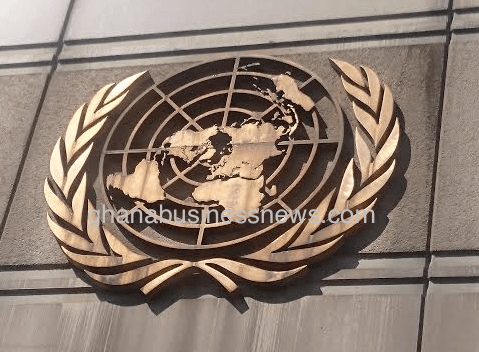Prayer Camps must work with medical doctors – UN Committee
 Ms Margo Waterval, a Member of the United Nations Human Rights Committee, has advised heads of prayer camps to work with qualified medical doctors to identify and separate spiritual problems from mental health conditions in the interest of patients.
Ms Margo Waterval, a Member of the United Nations Human Rights Committee, has advised heads of prayer camps to work with qualified medical doctors to identify and separate spiritual problems from mental health conditions in the interest of patients.
The Committee raised concerns about unregistered prayer camps, which it said dealt with diseases, particularly mental illness, and used torture and other inhuman and degrading treatments.
It, therefore, recommended to the Government to ensure the registration and regulation of such prayer camps.
The Committee identified the operations of these prayer camps as part of the three key issues of concern following its review of Ghana’s Human Rights record in July 2016.
The issues are discrimination and harmful traditional practices; persons with disability and psychiatric treatment; and conditions of detention and violence among inmates.
Ms. Waterval is on a follow up mission to assess the extent of the implementation of the recommendations the Committee made to the Government to address the key issues raised in the review.
She told the GNA that it was important to regulate these prayer camps and to ensure that their heads were sensitised on human rights issues.
The mission was organised under the auspices of the Centre for Civil and Political Rights (CCPR).
Ms Waterval explained that since humans were spiritual they would want to patronise prayers camps for their solutions, therefore, it would be impossible to close spiritual camps.
Therefore, the best option was to develop structures that would make them more beneficial instead of inimical to the health and dignity of patrons.
She also advised the Government to beef up the staff strength at the public psychiatric institutions and improve the poor conditions at the facilities.
On the issue of discrimination and harmful traditional practices, the Committee, during the review, raised concerns about the persistence of harmful practices such as Female Genital Mutilation (FGM) and Trokosi (Ritual Servitude), forced and early marriages and witchcraft accusations leading to confinement in witch camps.
It recommended the strengthening of awareness-raising and educational programmes in communities where they prevailed, enhancing efforts to prevent and eradicate such practices, as well as investigating and giving victims access to remedies and adequate protection, rehabilitation and reintegration mechanisms.
She stated that although the Government had not given the Mission information on concrete steps being taken to address the issues of FGM and Trokosi, there had been efforts to address the incidence of early and forced marriages by ensuring that girls were kept in school.
She acknowledged the sensitive nature of the FGM issue and called for increased education on such harmful practices, especially in schools.
On detention and violence among inmates, the Committee’s complained about the lack of segregation of inmates by age, sex, and custodial status.
It also complained about some inmates exercising disciplinary authority over others and the insanitary conditions at detention facilities.
It recommended that measures be put in place to improve the conditions in prisons, segregate inmates by sex, age and status and also introduce a policy on the use of non-custodial penalties.
Ms Waterval said interactions during the mission showed that there was a misunderstanding on the recommendation to segregate inmate by sex, age and custodial status, which had since been clarified.
She, therefore, appealed to officials to give information to the Human Rights Committee in such cases so they could better assess the situation.
“It is good that I am here to raise awareness because some of the officials were not aware that they had to report to the Committee within a year,” she said, adding that the meetings held so far had been very fruitful, with Ghana asking for an extension of the deadline to end of August 2017.
She noted that despite the lack of awareness of the reporting obligation, the Government was taking steps to implement some of the issues as a matter of responsibility.
“With the awareness and reminder given the Government, I think, that they will look into all these issues and try to implement them,” she noted, adding that; although the Government could not implement everything within a year, it was an ongoing process.
She also urged the Government to engage more with Civil Society Organisations to get the information that would enable them to take better steps towards implementing the recommendations of the committee.
This is because civil society organisations, she said, were more in touch with the issues on the ground and could better provide the necessary information to inform action.
“The coordination has to be better,” she stated.
Source: GNA
